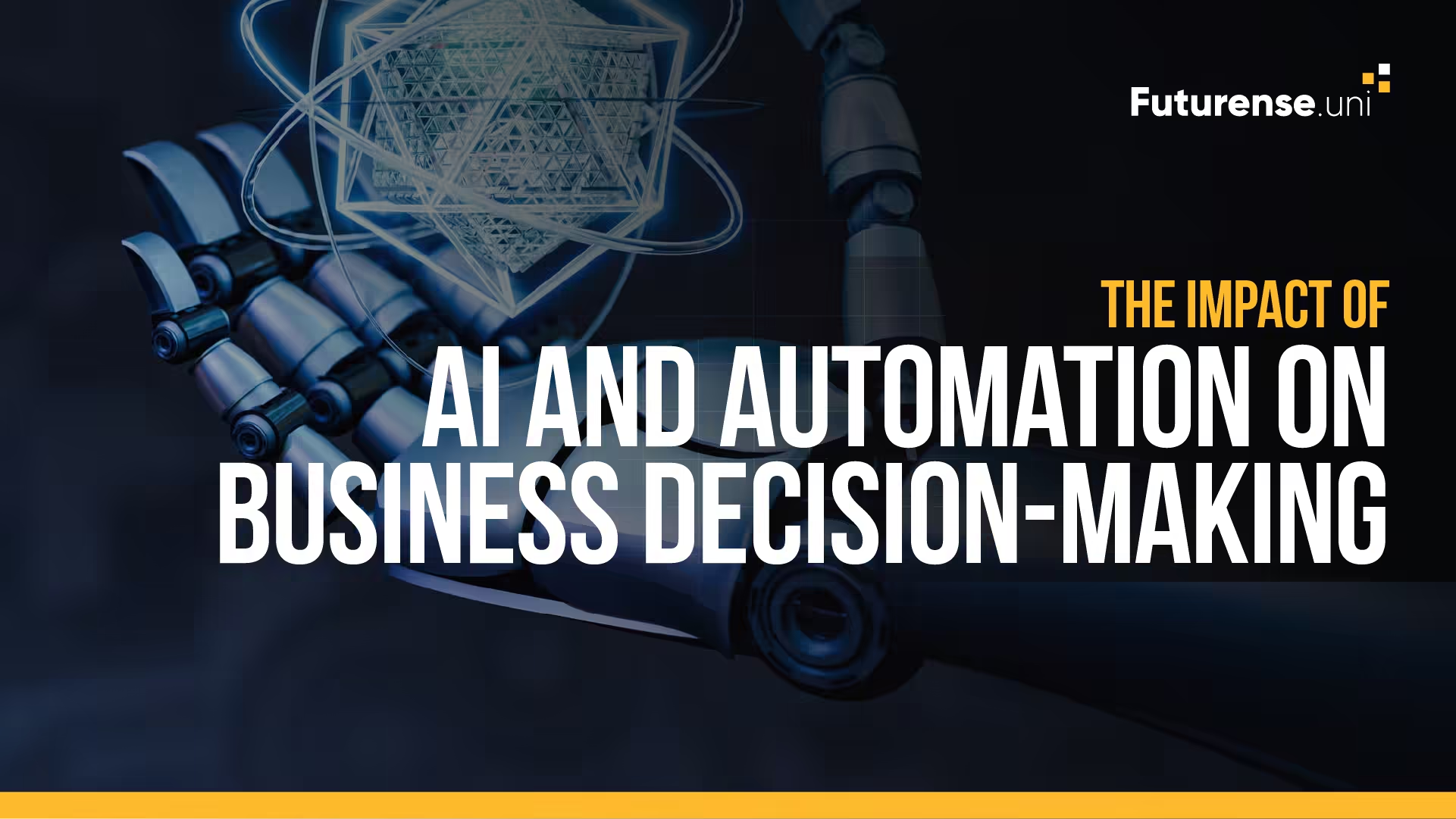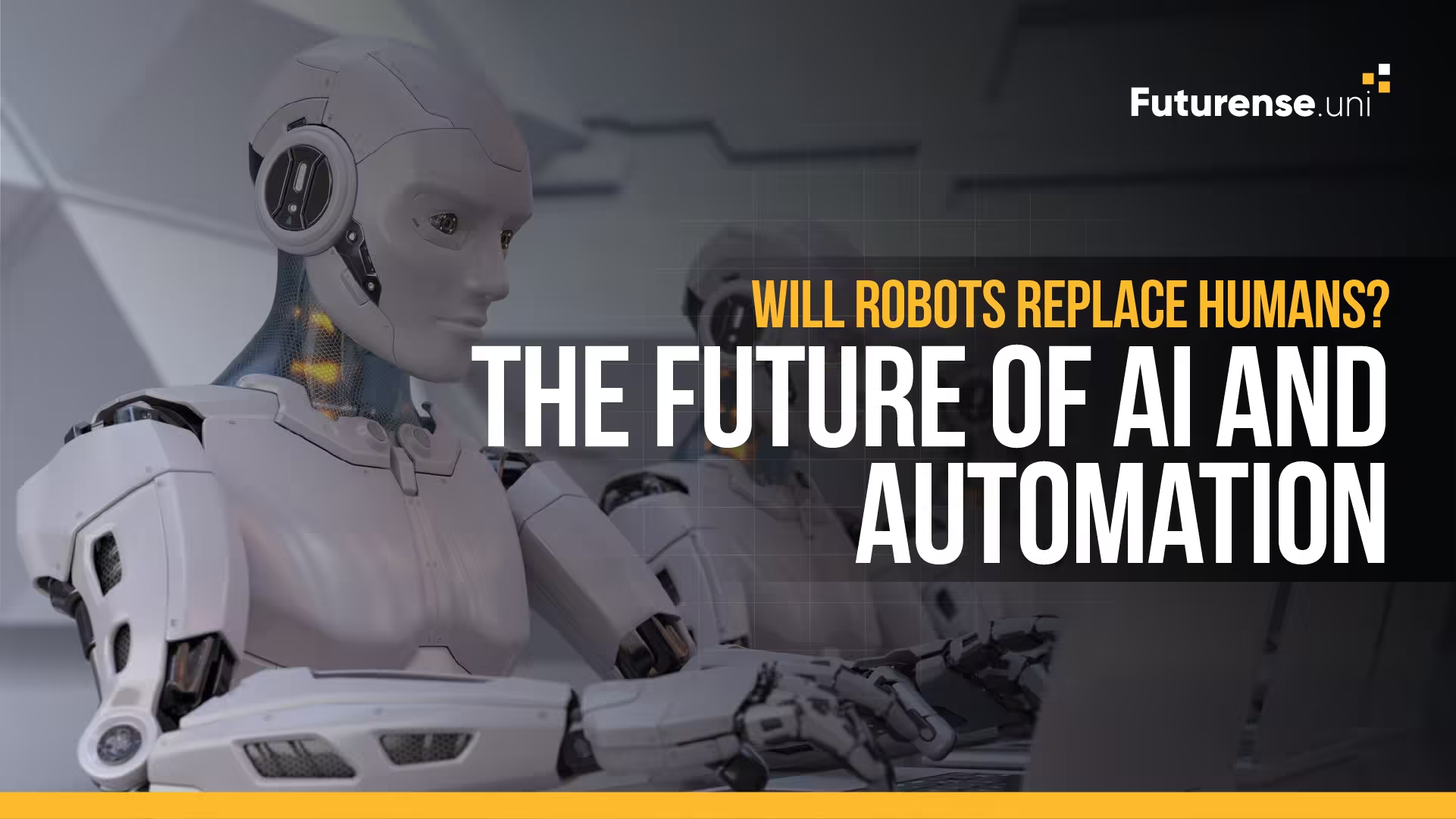The AI-Driven Business World
AI and automation are reshaping businesses, making data-driven decision-making a necessity. Companies rely on AI to analyze vast amounts of data, optimize operations, and predict market trends. This shift requires professionals who understand both business strategy and technology.
Overview: AI Reshaping Business and Decision-Making
AI has transformed industries by enabling faster and more accurate decision-making. Businesses use AI to improve customer experiences, streamline supply chains, and enhance marketing strategies. A Tech MBA or an MBA in Information Technology Management equips professionals with the knowledge to integrate AI into business operations effectively.
The Growing Role of AI in Data-Driven Decision-Making
AI is not just automating tasks—it’s driving strategic decisions. Companies use AI for fraud detection, risk assessment, and personalized customer interactions. Those with an MBA in Tech gain expertise in managing AI-driven insights, ensuring better business outcomes.
Also Read: Cybersecurity: Protecting Your Digital World
Why Businesses Must Adapt to AI-Powered Decision-Making
Adapting to AI is crucial for businesses to stay competitive. AI-driven decision-making enhances efficiency, reduces costs, and improves accuracy. An MBA with AI prepares leaders to implement AI strategies, ensuring businesses stay ahead. With AI shaping the future, professionals with an MBA in Information Technology will play a key role in driving innovation and success.
How AI is Transforming Business Decisions
Artificial Intelligence (AI) is revolutionizing business decision-making by analyzing vast amounts of data quickly and accurately. Traditional decision-making relied on human intuition, but AI-powered tools now provide real-time, data-driven insights. Professionals with an MBA in Technology or an AI-Integrated MBA are well-equipped to leverage AI for strategic decision-making, giving businesses a competitive advantage.
Predictive Analytics and Data-Driven Decisions
Predictive analytics is a game-changer for businesses. AI processes historical and real-time data to identify patterns and forecast trends, helping companies minimize risks and seize opportunities. With a Tech MBA or an MBA in Tech, professionals can integrate AI-driven models into business operations, ensuring smarter decision-making across industries.
Also Read: MAANG Companies: Who are These Tech Giants?
AI in Business Strategy: Real-World Applications
- AI in Marketing: AI enhances customer insights, personalizes recommendations, and creates targeted ads, improving engagement and conversion rates. An MBA in Information Technology helps professionals utilize these AI-driven marketing tools effectively.
- AI in Finance: AI-powered algorithms detect fraud, assess risks, and optimize financial strategies. A Tech MBA provides the expertise needed to implement AI in financial decision-making.
- AI in Supply Chain: AI forecasts demand, automates logistics, and streamlines operations, reducing costs and improving efficiency. Leaders with an MBA in Technology can drive AI adoption in supply chain management.
As AI continues to shape industries, professionals with an MBA in Information Technology Management will play a crucial role in integrating AI into business strategies. Companies that embrace AI-driven decision-making will stay ahead in an increasingly tech-driven world.
The Role of Automation in Business Decision-Making
Automation is revolutionizing business decision-making by reducing human errors and increasing efficiency. AI-powered automation enables businesses to process vast amounts of data quickly, ensuring faster and more accurate decisions. With an MBA in Technology or an MBA in Information Technology Management, professionals gain the expertise to implement automation tools that enhance productivity and streamline operations.
AI-Powered Workflow Automation
One of the biggest advantages of automation is the reduction of repetitive tasks. AI-driven workflow automation allows businesses to focus on strategic decision-making while routine processes run seamlessly in the background. A Tech MBA or an MBA in Tech equips professionals with the knowledge to integrate automation into business models, improving operational efficiency and reducing costs.
Examples of Automation in Different Industries
- Chatbots in Customer Service: AI-powered chatbots handle customer inquiries 24/7, reducing response times and improving customer satisfaction. Businesses with an MBA in Information Technology understand how to optimize chatbot interactions for a better customer experience.
- Robotic Process Automation (RPA) in Finance: RPA automates repetitive financial tasks such as data entry, fraud detection, and compliance checks. An MBA in Tech prepares professionals to manage and implement RPA solutions in the financial sector.
- AI-Driven Scheduling and HR Automation: AI automates employee scheduling, resume screening, and workforce analytics, reducing HR workload. With an MBA in Information Technology Management, professionals can leverage AI to improve HR efficiency and decision-making.
As automation continues to shape industries, professionals with an MBA in Technology will be essential in driving AI adoption. Businesses that embrace AI-powered automation will achieve higher efficiency, accuracy, and long-term success.
Also Read: What is the Difference Between BE and BTech?
Key Benefits of AI in Business Decision-Making
Challenges and Ethical Concerns of AI in Decision-Making
While AI enhances business decision-making, it also presents several challenges and ethical concerns that organizations must address.
Data Privacy & Security Risks
AI processes vast amounts of sensitive business and customer data, making it vulnerable to cyber threats and breaches. Without strong security measures, businesses risk exposing confidential information. Professionals with an MBA in Information Technology Management can implement AI-driven cybersecurity strategies to safeguard data.
Bias in AI Algorithms
AI models learn from historical data, which can sometimes contain biases. If not addressed, AI can reinforce discrimination in hiring, lending, or law enforcement. Leaders with an MBA in Technology must ensure ethical AI practices by implementing unbiased data training techniques.
Over-Reliance on AI
Relying too much on AI can lead to a lack of human oversight in decision-making. While AI improves efficiency, human intuition and critical thinking remain essential. An MBA in Tech equips professionals to balance AI automation with human judgment.
Job Displacement Concerns
AI and automation are replacing repetitive jobs, raising concerns about workforce displacement. However, an MBA in Information Technology prepares leaders to upskill employees, ensuring they adapt to AI-driven roles and contribute to innovation.
Addressing these challenges is crucial for ethical and responsible AI adoption in business.
Also Read: The Future of AI and Automation: Will Robots Replace Humans?
The Future of AI-Driven Decision-Making
The future of AI-driven decision-making is poised to be more transparent and collaborative, with innovations like Explainable AI (XAI) leading the way. XAI helps make AI decisions understandable to humans, ensuring transparency and trust in AI-driven processes. This is essential for businesses that rely on AI to guide critical decisions.
AI is not set to replace human leaders but to augment their decision-making capabilities. AI-Augmented Decision-Making allows professionals to make more informed, data-driven decisions while maintaining human oversight and intuition. This approach will be key to maintaining a balance between automation and human expertise.
For professionals pursuing an MBA in Information Technology Management, understanding AI-driven decision-making is crucial. The integration of AI into business strategies can enhance operational efficiency, improve customer insights, and drive innovation. By leveraging AI tools, IT managers can make smarter, faster decisions while maintaining ethical and transparent practices. This synergy between AI and human expertise will define the future of leadership in technology-driven industries.
Looking ahead, we can expect several trends to shape AI-driven decision-making:
- AI in Real-Time Business Analytics: AI will continue to improve its ability to process real-time data, helping businesses make immediate, informed decisions in fast-paced environments.
- AI in Predictive Decision-Making Models: AI will play a greater role in forecasting business outcomes, allowing organizations to stay ahead of market shifts and customer needs.
- AI’s Role in Regulatory Compliance and Governance: AI will increasingly help businesses meet regulatory requirements by automating compliance checks and ensuring adherence to standards.
The future of AI in decision-making promises smarter, faster, and more ethical business practices.
FAQs
How does AI improve business decision-making?
AI improves decision-making by analyzing large datasets quickly, identifying patterns, and providing data-driven insights to enhance business strategies and outcomes.
What industries benefit the most from AI in decision-making?
Industries like finance, healthcare, retail, and manufacturing benefit greatly from AI, as it improves efficiency, customer insights, and risk management.
Can AI completely replace human decision-makers?
AI can support decision-making but cannot fully replace human judgment. Human oversight is crucial to ensure ethical and intuitive decisions.
What are the risks of AI in business decision-making?
Risks include data privacy issues, algorithmic biases, over-reliance on AI, and potential job displacement. Ethical implementation and oversight are necessary.
How do companies use AI for predictive analytics?
Companies use AI to analyze historical data and predict future trends, helping with demand forecasting, inventory management, and personalized marketing.
What Is The Role Of Automation In Business Decisions?
Automation reduces repetitive tasks, speeds up decision-making, and improves efficiency, allowing businesses to focus on strategic decisions.








.avif)